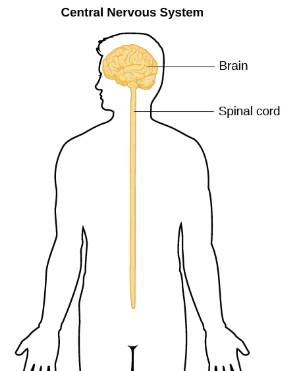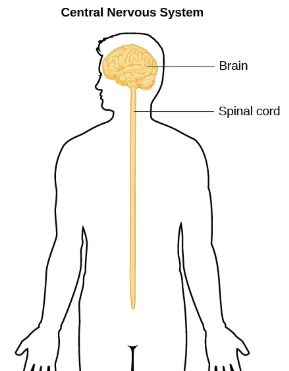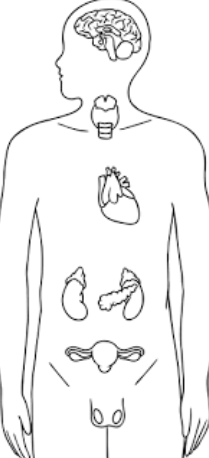Biology — nervous and endocrine systems (homestasis)
1/25
There's no tags or description
Looks like no tags are added yet.
Name | Mastery | Learn | Test | Matching | Spaced | Call with Kai |
|---|
No analytics yet
Send a link to your students to track their progress
26 Terms
homeostasis
an organisms ability to regulate its internal conditions so reactions can happen at optimal rates
what 3 internal conditions must be regulated?
blood glucose concentration
temperature
water levels
what 2 organs do the central nervous system include?
brain and spinal cord

stimuli
a change in environment
receptor
a specialized cell or protein that detects stimuli
coordinator
processes stimuli information from receptor (brain, spinal cord and pancreas)
effector
muscle, gland or organ which responds to stimuli to restore optimum levels
synapse
the gap inbetween neurons
neurotransmittors
chemicals that are released due to electrical implules and diffuse across the synapse
reflex arc
the pathway which electrical impulses are transmitted quicker for a reflex reaction
reflex action
a rapid and automatic reaction which happens without brain’s conscious part
describe how a reflex action occurs via reflex arc
stimulus occurs
receptor cells in the skin detects stimuli
electrical impulse travels down sensory neurone to relay and motor neurone through the synapse
chemicals are diffused across the synapse
effector (glands secrete hormones or muscles contract) will respond

what type of system does this diagram show?
what is it’s function?
central nervous system
sends electrical impulses along neurons

what type of system does this diagram show?
what is it’s function?
endocrine system
releases hormones into blood stream to target cells
which 6 glands are present in the endocrine system?
pancreas
ovaries
testes
thyroid
adrenal glands
piturity (master) gland
hormones
chemicals secreted by glands into the blood
state the function of the pancreas and what hormones are secreted
releases insulin and glucagon to control blood glucose
state the function of the ovaries and what hormones are secreted
which releases female sex hormones, oestrogen and progesterone for menstural cycle
state the function of the testes and what hormones are secreted
releases male sex hormone, testosterone
state the location of the thyroid and what hormones are secreted
in the neck
releases thyroxine which stimulates metabolic rate
state the function of the adrenal glands and what hormones are secreted
releases adrenaline in times of fear or stress
state the location of the pituirity (master) gland and what hormones are secreted
in the brain
secretes several hormones into the blood
explain how the two hormones keep the blood glucose concentration at the correct level in the human body
insulin → glucose too HIGH
insulin causes glucose to diffuse into liver and muscle cells to be converted into glycogen
excess glucose converts into glycogen for storage
glucagon → glucose too LOW
glucagon breaks down glucose in liver cells
glucose diffuses into blood
negative feedback
process which ensures that changes are reversed and return to optimum levels
Some students investigated the effect of drinking caffeine on reaction time.
Describe how to do the ruler-drop test. [6]
person 2 measures reaction time of person catching ruler
person 1 places forearm across a table with their hand open
person 2 holds ruler vertically, in-between the person 1’s thumb and first finger and drops it randomly
person 1 must catch the ruler as soon as it is dropped
person 2 records measurement just above person 1’s thumb
repeat test to calculate mean
state the variables for the ruler drop experiment
IV: person drinks coffee
DV: reaction time
CV: starting distance of ruler